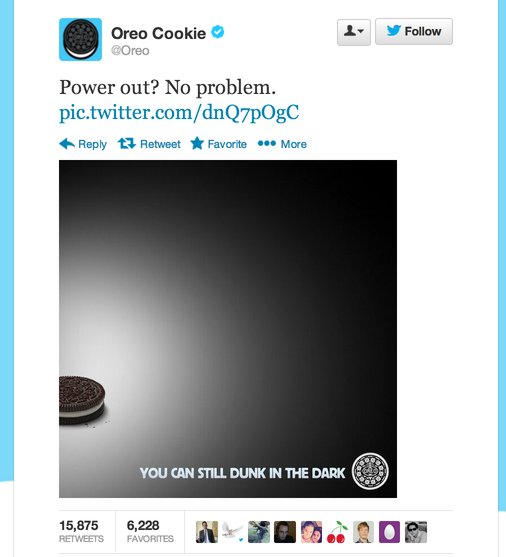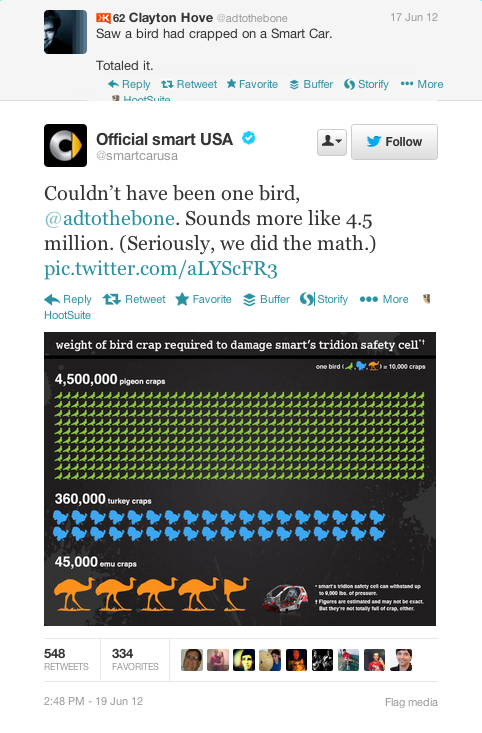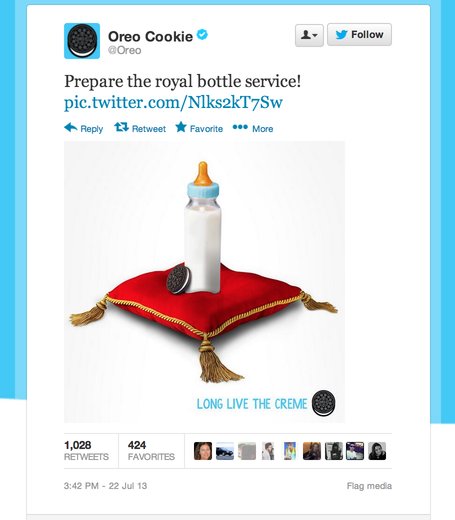 Some of the most compelling social media and content marketing stories are those that happen in real time. They seize the opportunity to be part of conversations at the peak of their energy and relevance. In the age of 24/7 news cycles, instant mobile internet access and quick and dirty social sharing via Twitter and Instagram, being first—but also clever—wins.
Some of the most compelling social media and content marketing stories are those that happen in real time. They seize the opportunity to be part of conversations at the peak of their energy and relevance. In the age of 24/7 news cycles, instant mobile internet access and quick and dirty social sharing via Twitter and Instagram, being first—but also clever—wins.
As Jonathan Mildenhall, Coca Cola's VP of Advertising Strategy and Content Excellence put it in his recent Content Marketing World keynote: "Real time marketing is the holy grail of all the marketing we do so that we can produce content that reflects what's going on in the world."
Of course, Coca Cola, is a big consumer brand, but the same realities—and benefits—come into play for B2B marketers (albeit on a much more targeted scale, typically). Whether B2B or B2C, real-time content marketing falls into three main categories that your content strategy should account for. RELATED CLASS: Real Time or Die: Feeding the Content Beast
1. Now: unexpected opportunities
Breaking news and live events provide great opportunities for true real-time marketing, or "newsjacking," a term coined by David Meerman Scott. One of the most popular recent examples is Oreo's sweet "You can still dunk in the dark" tweet, which delivered double-stuffed Super Bowl buzz during an unexpected power outage.
Or this inspired response from Smart Car to a hilarious tweet about a bird, um, crapping on one of their cars:
The Smart Car folks not only responded in a witty way, but also created an infographic to illustrate their point in a fun way.
A word of caution here, though: By their nature breaking news events are moving fast. It's all too easy for your "clever" content to strike the wrong chord and stoke a real-time media crisis, as when Kenneth Cole stepped in it big time with his unfortunate real-time tweet suggesting that 2011 unrest in Egypt was in response to his new spring collection.
2. Near now: expected opportunities
This is news you know is going to happen, even if you don't know the exact moment it will hit. For example, we all knew a royal baby was due in London over the summer. And Oreo, once again, was ready.
Newspapers and other traditional media have done this forever, writing obituaries for world leaders, celebrities and other newsworthy people before they die. Or writing multiple stories in advance for different outcomes to sports or political events.
“Scheduled news,” such as the release of research or other valuable data is especially fertile ground for B2B companies. For example, the business community always anxiously awaits Mary Meeker's annual Internet Trends Report. And industry events such as trade shows and conferences provide great opportunities to report on newsy announcements, review new product releases and live blog or tweet keynotes and other presentations.
3. Future now: created opportunities
Finally, there's the news you make yourself. It could be something big—like your own industry event—or something as small as a regular meme on your Facebook page, like #ThrowbackThursday or #PhotoBombFriday. Either way, you can build these planned events into your editorial or social content calendar so you're ready to roll when the time comes.
Key Takeaway: To act in the moment, plan in advance.
It can be a challenge to get your content marketing produced in a timely way, much less approved by your company’s legal and brand police. To pull it off, you need sound strategy, proactive policies and processes, the right tools, and a nimble team of creative content producers.
Learn how to incorporate real-time content into your marketing strategy.
Watch Real Time or Die: Feeding the Content Beast and see how top brands, bloggers and media outlets are producing high-impact content at higher velocity. You’ll also get expert tips to plan for and produce real-time content—and feed your own content beast. Access it now with a FREE trial to the Online Marketing Institute. Get instant access now.


